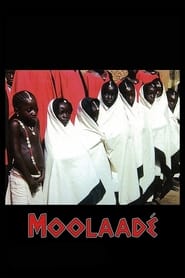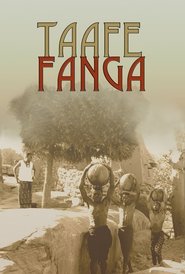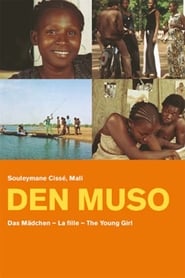kategori film bahasa bambara
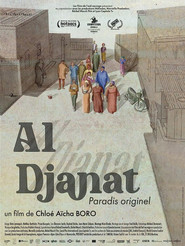
Al Djanat, the Original Paradise 2023
The death of a Burkinabé family’s patriarch and the division of his estate unearths conflict between his heirs and larger questions about inheritance, belonging and the communal customs of West Africa versus Westernized courts.

Barkomo 2020
Set in the 17th century in a small cave-dwelling village in northeastern Mali, the film follows Yamio — a woman who, unable to conceive after 10 years of marriage and shamed by the fertility of her husband's second wife — throws herself off a cliff. When she miraculously lands without suffering any harm, she wanders in exile, finally taking refuge in Barkomo, a kingdom that has fallen on hard times. When she discovers that she is pregnant with a miracle child, she has the chance to change the fortunes of everyone around her.

Our House 2015
Bamako. Several women are illegally evicted from their home in 2008. Their brother, Souleymane Cissé, takes up his camera to look back at his childhood and family history in a country heading for war despite a tradition of tolerance.

Faro: Goddess of the Waters 2007
Faro is a real goddess of a real tribe (the Bamana) in the West African country of Mali. In a landlocked country like Mali, covered in part by the Sahara Desert, water is a resource that can never be taken for granted. The Bamana village in Faro: Goddess of the Waters not only sits on a riverbank, but also depends for much of its food on fish from the river. Faro is the dominant character in this film, the unseen force for which all action takes place. (c) Ferdy on Films [Marilyn Ferdinand]

Bamako 2006
Caught in the stranglehold of debt and structural adjustment, Africa is fighting for its survival. In the face of disaster, representatives of African society bring an action against international financial institutions. The trial takes place in Bamako, in the yard of a house, among its inhabitants.
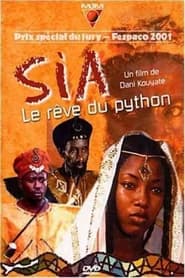
Sia, the Myth of the Python 2001
Kaya Maghan, the despotic king of Wagadou, follows the instructions of his priest by ordering the religious sacrifice to the Python God of Sia Yatabaree, the virgin daughter of a notable family. A gift of gold equivalent to Sia’s weight is given to her family as compensation for surrendering their daughter for the sacrifice. However, Sia runs away and finds shelter in the home of a mad prophet who has railed against the king. The king orders his top general to locate Sia, but the general is conflicted since Sia was engaged to marry his nephew, Mamadi, who is in battle on behalf of the kingdom. Mamadi returns and joins his uncle to do battle against the Python God. - Wikipedia, accessed 31 July 2021
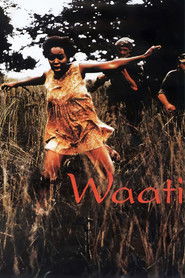
Time 1995
Beginning in South Africa under the apartheid regime, the film follows a young girl who flees the country after a violent confrontation with a local white landowner in which her father is killed. She settles in Abidjan, where, ten years later, she has become a university student. As part of her studies, she visits the Taureg tribe on the edge of the Sahara before at last returning to post-Apartheid South Africa.
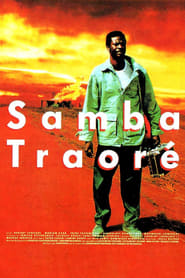
Samba Traoré 1993
Samba (Bakary Sangare) has returned unannounced to his home village, bringing with him a suitcase full of money. Despite his protests that this is money that he earned in the city, the villagers have their doubts. In fact, he held up a gas station and unintentionally killed its attendant, and is in hiding here. Meanwhile, he has married a woman (Mariam Kaba) with a child who left her husband and built a house for her. He is building a bar with his remaining money, but he encounters a situation which makes him believe that he will be exposed to the police, and runs away, leaving a pregnant, very ill wife behind, much to the disgust of the villagers and Samba's own family.
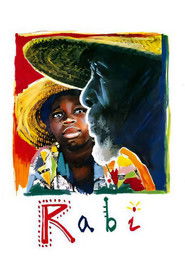
Rabi 1992
A blacksmith falls off his bicycle when he tries to avoid a tortoise which crosses his path. He brings the animal home to his twelve year old son, Rabi, who becomes so fascinated that he forgets his chores at this father's shop. When the angry smith removes the tortoise, Rabi's grandfather, Pusga, helps Rabi find a larger one to consol the boy. Rabi wants to tame the animal and this new obsession leads him to defy parental authority. Pusga gently opens the boy's eyes to the visible and invisible ways of nature. Rabi starts to understand liberty, responsibility and respect for life. In turn he awakens long buried sentiments in the grandfather.

Fire! 1991
Life in the African country of Mali in the 1990s is vividly highlighted in this mild drama. In the story, a young forest ranger who sees that his work holds the key to the future of his country (through reforestation) is disgusted at the short-sighted, money-grubbing ways of his superiors. He has a much better relationship with local villagers than with his agency's bosses. As the movie opens, the villagers are preparing to hold a hunting ceremony but are not sure whether they will do it the old fashioned way, with a bonfire, or will obey a government decree that open fires are too dangerous. There is a lot of sexual teasing between the villagers, including some harmless horseplay. For instance, when a man whispers another woman's name in his sleep, his wife pours water into his ear in revenge.
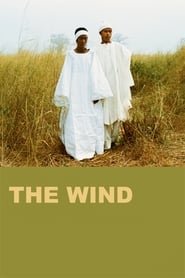
The Wind 1983
Two Malian teenagers, Bah and Batrou, from different backgrounds, meet at secondary school. Bah is the descendent of a great tribal chieftain. Batrous father, a provincial military governor, represents the new ruling power. The two teenagers are part of a generation that rejects the established order and challenges the society in which they live.
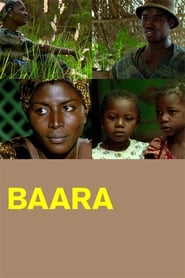
Work 1978
A young manager of a factory encounters a man walking along a road who says his family traditionally are servants to the manager's family. The manager offers him a job, and as he watches out for the other man's welfare, begins to see how the company mistreats its workers. The manager is challenged between his ethics and the pressure from others to protect his own interests as dire problems surface at the factory

